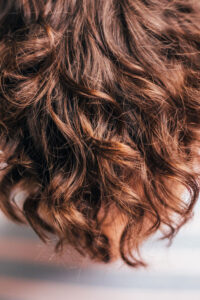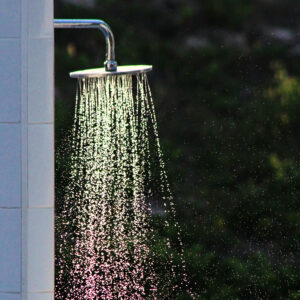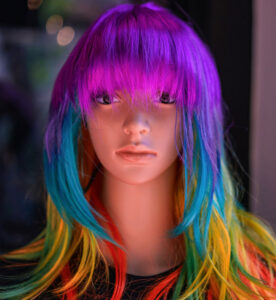Tips, Tricks & FAQs


Strand Testing
 Prior starting the full head application of Colourless, it is highly recommended that a strand test is completed prior. This will ensure you know what your end result will be, and give you the best indication as to the condition of you hair.
Prior starting the full head application of Colourless, it is highly recommended that a strand test is completed prior. This will ensure you know what your end result will be, and give you the best indication as to the condition of you hair.
- Mix 5mls of Bottle A with 5mls of Bottle B in a separate plastic or glass container. Do not use metal.
- Apply to a small section of your hair, saturating it from root to tip (or whatever area of colour your are wanting to remove).
- Wrap in cling film, and process for 60 mins. Rinse thoroughly.
- The colour and the condition of this section of hair will dictate your end result.
- If you are not happy with the result, do not proceed with the full head application, as it will not be any different.
- If you have any questions, feel free to contact us for advice
Colour Build Up
 If you colour your hair at home, and are taking your colour from roots to tips with each application, it is likely that you have colour build up – Your ends are darker than your roots.
If you colour your hair at home, and are taking your colour from roots to tips with each application, it is likely that you have colour build up – Your ends are darker than your roots.
Using Colourless Hair Colour remover once a quarter (every 3 months) will remove this build up to give you an even base for your next application.
Re-Colouring after Colourless
 After an application of Colourless, it is common for your hair to be more porous. This means that your hair will absorb the colour pigment of your next application more readily, which in turn can lead to a darker result than may be desired.
After an application of Colourless, it is common for your hair to be more porous. This means that your hair will absorb the colour pigment of your next application more readily, which in turn can lead to a darker result than may be desired.
To prevent this, it is recommended to go 2-3 shade lighter than your intended end result. i.e. if you want a dark brown end result, purchase the light brown shade.
Rinsing
 The most common mistake that is made when using Colourless, is not setting a timer for the rinsing stage. This results in some of the artificial colour pigments remaining in your hair shaft, and they will re-oxidise and your hair will return to the colour that you are trying to remove.
The most common mistake that is made when using Colourless, is not setting a timer for the rinsing stage. This results in some of the artificial colour pigments remaining in your hair shaft, and they will re-oxidise and your hair will return to the colour that you are trying to remove.
You cannot over rinse, but you can under rinse. If you have thick and/or long hair, ensure you rinse for longer at each stage.
Smell
 Colourless hair colour remover contains an ingredient called a ‘Reduction Agent’. Reduction Agent ingredients work in the opposing principle to oxidation, which is the technology from which permanent colouring works. A notable factor about Reduction Agents is they have a sulphur smell, which can often be likened to eggs. Particularly dry or porous hair is more likely to hold on to these chemicals longer so will require several if not more shampoos. The remover must be rinsed with hot (comfortable) water; otherwise, there is a chance the odour could cling to the hair for several days after the removal treatment.
Colourless hair colour remover contains an ingredient called a ‘Reduction Agent’. Reduction Agent ingredients work in the opposing principle to oxidation, which is the technology from which permanent colouring works. A notable factor about Reduction Agents is they have a sulphur smell, which can often be likened to eggs. Particularly dry or porous hair is more likely to hold on to these chemicals longer so will require several if not more shampoos. The remover must be rinsed with hot (comfortable) water; otherwise, there is a chance the odour could cling to the hair for several days after the removal treatment.
Wash the hair with a clear, clarifying shampoo under hot (comfortable) water. Next, dissolve two teaspoons of bicarbonate of soda into a mug of hot water. Wait for the mug to cool, then rinse the bicarbonate of soda solution through the hair and leave for 10 minutes before flushing the hair with warm water. Finish with a leave-in conditioning treatment. The bicarbonate of soda rinse will neutralise any odour left in the hair. If you still detect some of the smell, you can repeat the process.
As an over & above measure, you can use a hair mask. Chose a beautiful smell that you like (you can also add your favourite essential oil scent to the hair mask), leave it on the hair for 10-15 minutes, and then rinse.
When not to use Colourless
 Colourless will have limited results on Temporary, Semi permanent and Fashion Colours (think pinks/purples/greens/blues). A strand test should be completed before attempting a full head.
Colourless will have limited results on Temporary, Semi permanent and Fashion Colours (think pinks/purples/greens/blues). A strand test should be completed before attempting a full head.
Do not use Colourless if you have Henna or natural plant based colour in your hair.
Undertones & how to neutralise them
 When you are using Colourless Hair Colour Remover, you are removing the artificial colour pigments that you have previously put in your hair. Every time you colour your hair, you alter the natural undertone of the hair, which starts at red for dark hair, and goes through all the shades of orange up to yellow, as the hair gets lighter.
When you are using Colourless Hair Colour Remover, you are removing the artificial colour pigments that you have previously put in your hair. Every time you colour your hair, you alter the natural undertone of the hair, which starts at red for dark hair, and goes through all the shades of orange up to yellow, as the hair gets lighter.
If you are not wanting warm tones in your next colour, you will need to neutralise these undertones to counteract them. Blue/Ash will neutralise Orange, and Purple/Violet will neutralise Yellow.

